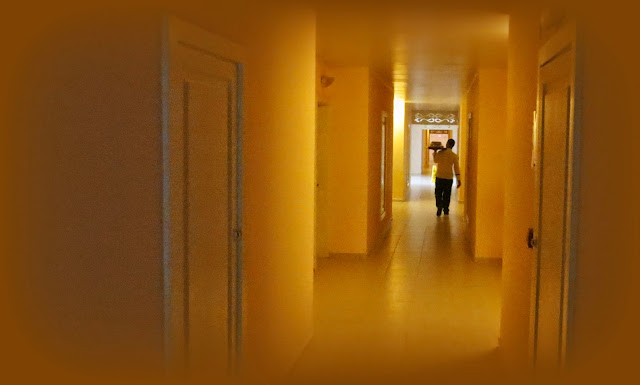A practical, non-religious look at children and families...
Parents deeply hope their children will have a good beginning so they can grow up, well equipped for life and unencumbered by malformed thinking and behavior.

A 'good beginning' of stable household, good schools and churches, health, food, safe streets ... all such things contribute to a realm in which children can develop the character and skills with which to pursue a productive life.
Attempts to define a child's 'good beginning' have proven inadequate, particularly when it comes to family. A child can have a good life when living with relatives other than his parents. Or, a child living with his own parents may not get a good beginning. A useful definition will have to be functional.

Unlike many creatures, children can't grow up unassisted; they need a social niche in which are addressed the two issues of (1) basic biological needs like food and shelter, and (2) physical, intellectual, and emotional development and capabilities needed to succeed in years to come. That niche has traditionally been the family, with variations from culture to culture. Not, however, the modern family trends we see in the western world today.

Increases in family dissolution (divorce, separation, abandonment), absent fathers and single mothers, marriage avoidance, and non-traditional marriage all parallel increases in poverty, crime, and incarceration. True?

Family originated in the distant past, parents and children plus aunts, uncles, grandparents, cousins ... family was the first micro-community. It provided stability, protection, affection, affirmation, instruction, and a share of what was available for all. While the 'nuclear family' is considered by many to be the critical element, the extended family often rounds out the 'functional definition' we're looking for when it comes to a child's good beginning. Family fills in where the need is.
So, what happens when the extended family bails out or the nuclear family dissolves?
Marriage and family are, among many things, a small economy and community. Viewed as such, their dissolution has significant economic consequences for the scattered members.
Numerous studies from groups leaning both left and right suggest that increasing numbers of children born out of wedlock, high divorce rates and looser family structures are contributing to rising poverty rates, especially among minorities and the under-educated. One result: an ever greater impact on society and resources.
The 2010 Census reported that for the first time in our history,
married couples make up less than half of all households. The traditional family with a mom, dad, and children at home now constitute less than 20 percent of
American households, down from 43 percent in 1950.
At the same time, the number of children born out of wedlock has exploded. In the mid-1960s, only 6 percent of children were born to unmarried parents. Some 40 percent of all children are born to
unmarried parents today; in the African American community, the figure is above 70 percent and for Hispanics, the total is 50 percent.
According to the Heritage Institute, 2008 Census data indicates the poverty rate for single parents with children was 36.5 percent compared to 6.4 percent for married couples. They conclude,
“Being raised in a married family reduced a child’s probability of living in poverty by about 80 percent.”
According to a study released last fall by the Brookings Institute, the rise in children born out of wedlock is
“assuring the persistence of poverty, wasting human potential, and raising government spending.” In the study of single-parent households, the Brookings researchers wrote that “the most important conclusion … is that these families play a central role in boosting the nation’s poverty rate and that they and their children contribute disproportionately (to other social costs).”
A U.S. study shows that fractured families, divorce, and unwed childbearing cost taxpayers at the least $112 billion per year, some $70 billion is in direct federal outlays, the balance borne at the state and federal level. The study conclusions are based on evidence that single-parent households have a higher propensity towards poverty, increasing the need for food stamps and Medicaid. The study notes that young people raised by single parents are more likely to get into trouble, more likely to develop drug problems or end up in jail.
A study in the U.K. reached similar conclusions.
Could the trend be reversed? Is a healthy extended family really that centrally important?
Note: My daughter and I share a background in sociology; we wondered who would raise healthier children - the families where she taught elementary school in the inner city, or my African friends in a safe but poor country. Some of her kids had lost family members to street violence, they knew the drug trade, street violence, and prostitution was the available employment for some of their mothers. Most were from single-parent households. There was no safe place for children to roam unattended. Gangs were a survival mechanism.
My African kids, by comparison, saw little or no violence, they were safe wherever they went, they were cross-generationally connected, and everyone watched out for them. And they were poor. But the values and goals of their community were good, and so were the kids.
On the whole, my third-world kids are perhaps more likely to grow up intellectually and emotionally well formed and comfortably adapted to society. They are more likely to be nobly motivated, ethically clear, and capable contributors to the community.
From the U.S. National Institutes of Health's National Library of Medicine (NIH/NLM):













.jpg)







